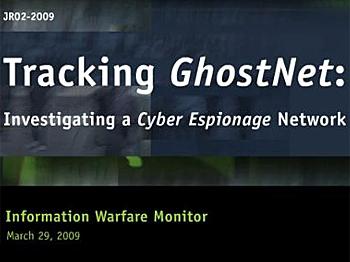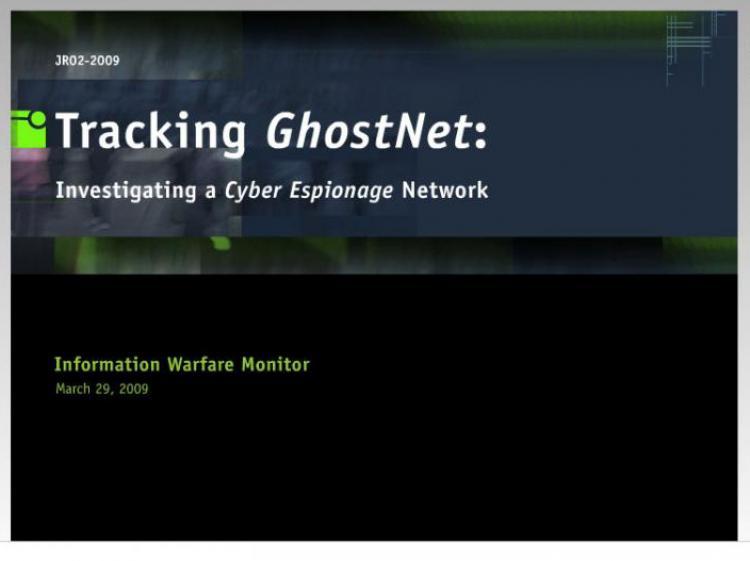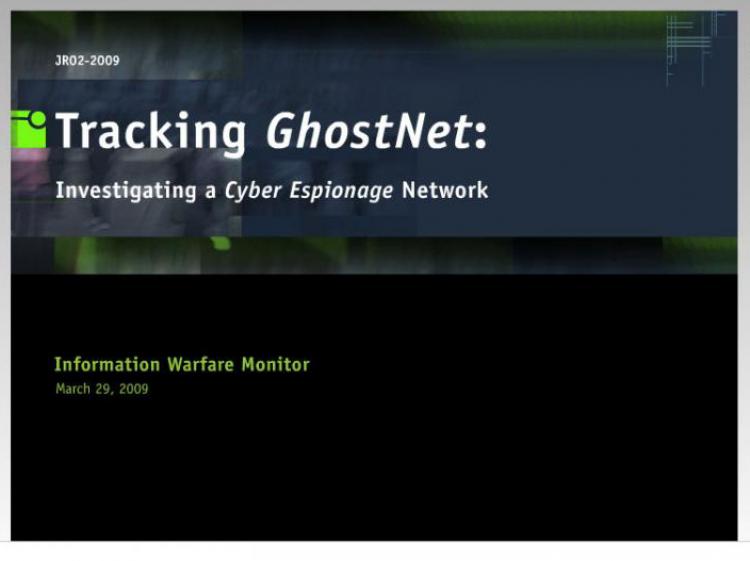Chinese hackers are reported to have penetrated 103 government offices. This means that they can break into most of the electronic doors around the world. Can you imagine: as you sit comfortably in a government office working on a computer—assuming unwisely that it is guarded like your border—someone in China can watch every keystroke including spaces and deletions?
A system like this has been uncovered recently by researchers in Canada—a system called Ghostnet.
Daisy is a senior IT consultant who helps clients improve their network security. She describes the security compromise as follows: a user is tricked to open a document or a web page containing malware, and then some backdoor programs are planted on his computer. “On many of the Trojans we inspected, [we found that] they opened network connections to some network addresses inside China. Many of these Trojans contained key-loggers, which captured every single keystroke that the user made. These Trojans are becoming harder and harder to detect and remove. Once a user’s computer has such a Trojan implanted on it, a lot of information can get leaked out.”
“Another common phenomenon is, after the user’s PC was compromised, someone would login to his email account, download all messages in the mailbox, and then the Trojan would send infected emails to the contacts from his account. The infected emails contained either attachment files or links to web pages, and the content of these emails were normally well-tailored to each recipient to make him or her believe that it was a legitimate e-mail.”
So, the biggest question is—who are these hackers? “If you look at the attacking methods and patterns, the scale, the effort, and the skills required for these attacks are often too enormous to be carried out by some individual ’script kiddies.' I don’t see how it could be possible without significant funding for these attacks.” says Daisy.
Although the Chinese regime denies its involvement in Ghostnet, it is hard to imagine that any individuals would have that much interest in gathering government information around the world, “walk” into the Dalai Lama’s office virtually, and monitor other dissident activities.
The Falun Gong group, which the Chinese communist regime has made the most effort to persecute, has long been the target of its cyber war. According to the Falun Gong group’s reports, their websites have often been attacked, and their emails hijacked.
The Chinese Communist regime is probably the only government that blacklists its own people overseas and invests a tremendous amount of money to monitor the activities of its own people.
Congressman Frank Wolf, who has long been outspoken about human rights violations in China, called on the U.S. government to task over the China’s cyber warfare last year. “In August 2006, four of the computers in my personal office were compromised by an outside source.
“This source first hacked into the computer of my foreign policy and human rights staff person, then the computers of my chief of staff, my legislative director, and my judiciary staff person. On these computers was information about all of the casework I have done on behalf of political dissidents and human rights activists around the world. That kind of information, as well as everything else on my office computers—e-mails, memos, correspondence and district casework—was open for outside eyes to see”.
In 2003, the Asian Pacific News Service reported that FBI Director Robert Mueller had testified to the United States Congress that China has more than 3,000 “front” companies that conduct direct espionage efforts. He also testified that thousands of Chinese visitors, students and business people who come to the United States each year are assigned intelligence tasks from the Chinese Communist regime.
“Left unchecked, such a situation could greatly undermine U.S. national security and U.S. military and economic advantage,” Mueller said.
In the same article, David Szady, FBI assistant director for counterintelligence, is quoted as saying, “They figured out that what they want is throughout the United States, not just embassies, not just consulates. It’s a major effort.”
Internet hacking and attacks can be found in every country. But Ghostnet is the only government espionage that has been organized on such as large scale.
An organized crime with the resource of an entire nation under the grip of a dictatorial regime is a million times more dangerous than an individual crime. It has the potential to terrorize the world.






